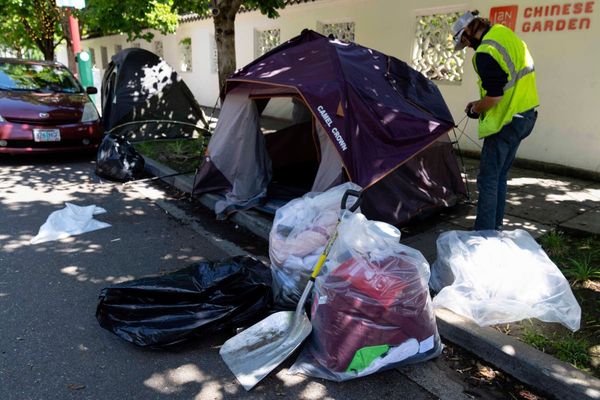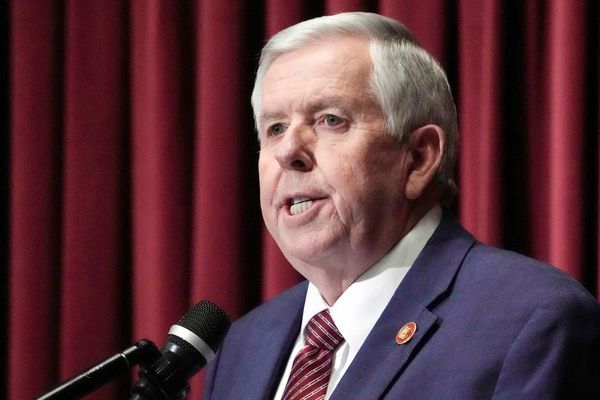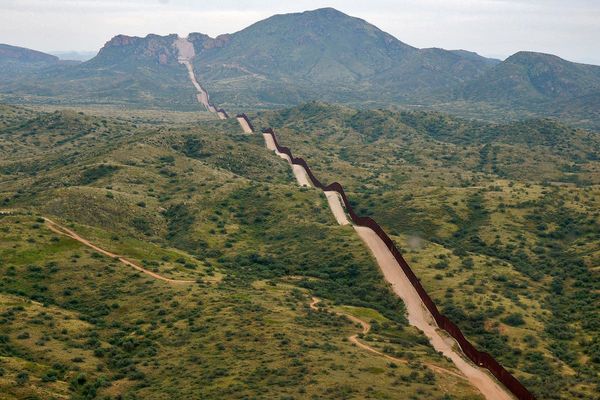
Unlike the rest of the US, the sleepy border community of Ajo, Arizona, is busier than ever these days, as hundreds of border wall construction workers pass through each day.
“The rest of us are staying at home just the way the governor has ordered,” said Susan Guinn-Lahm, an Ajo resident in her 60s. “We’re taking this seriously. They are not.”
Donald Trump is continuing to push for border wall construction amid the pandemic, and in mid-March, Customs and Border Protection (CBP) announced plans to build another 150 miles. Yet officials are alarmed by the impact on the workers and the rural border towns they are interacting with and, at times, living in.
Numerous residents in Ajo complained to the Guardian of construction workers having parties and coming into stores in groups as large as 20.
“As the rest of the country shuts down to stop the spread of Covid-19, construction crews continue building Trump’s vanity wall with billions of dollars in stolen funds,” said the Arizona congressman Raúl Grijalva. “The presence of large construction crews in small border towns threatens the health of those communities where they are already underprepared to deal with the coming public health emergency.”
Throughout the Covid-19 crisis, Trump has rationalized border wall construction as a way to contain the spread of the disease.
“The Democrat policy of open borders is a direct threat to the health and wellbeing of all Americans,” he said at a rally in South Carolina. “Now, you see it with the coronavirus.”
Public health experts say these claims have little basis, because the virus is not spreading into the US from Mexico – it is already spreading within US communities.
In Columbus, New Mexico, a so-called “man camp” was erected last week in the middle of town to house wall construction workers.
“Of course I am concerned,” the Columbus mayor, Esequiel Salas, told the Guardian by phone. Last week, the mayor sent a letter to SLSCO, the wall-construction company operating the camp, “to request that they could hold off their move into the man camp until 16 April at the least”, he said.
This issue is particularly acute in rural border towns where access to healthcare is sparse. “This move is honestly infuriating,” said Johana Bencomo, executive director of the faith-based border community organization NM Cafe. “To put at risk communities like Columbus, places that lack infrastructure and healthcare facilities, is so offensive,” she said.
In Ajo, many workers live in town, occupying the RV parks, hotels and rental houses.
“They are bringing people as far away as places like Nebraska and Montana,” said Gail Emrick, executive director of the Southeast Arizona Area Health Education Center in Nogales. “It’s just bringing an irrational level of danger to these communities.”
Many of the workers travel home on weekends to their families and communities.
According to Emily Siegel, the owner of the Sonoran Desert Inn and Conference Center in Ajo, the presence of the workers in town is “uncomfortable”.
“Our entire reason for being here is to convene people,” said Siegel, who, along with her husband, decided to close in the center in mid-March, “the busiest time of the year”, to protect their staff, guests and the town. “We made the decision early. We realized we had a responsibility not to convene.”
In late March, a resident of Ajo who declined to give their name said they were delivering supplies to a friend when they passed by a house rented to the construction workers. “The backyard was lit up, music was blaring, and they were throwing horseshoes,” said the person, describing the get-together of “10 or more people”.
The army corps of engineers, the agency responsible for overseeing contractors on the border, has said that Centers for Disease Control and Prevention guidelines on social distancing are being followed on the border.
A border wall construction worker named Steve Allen said in the community Facebook forum “Ajo Speaks” that employees were not tested for Covid-19 but their temperatures were checked daily.
He also said, however, that some workers lived three people to a house, carpooled to the construction site, and had on at least one occasion gathered at one another’s homes. .
“Three guys invite a friend and you have six people pretty easy,” he noted.







